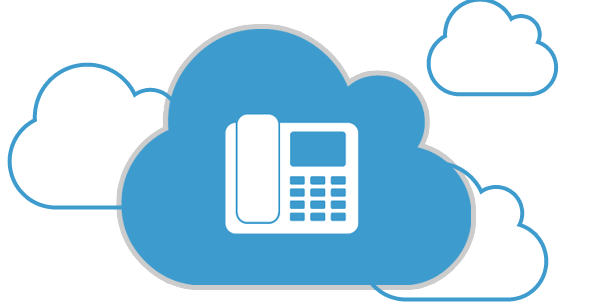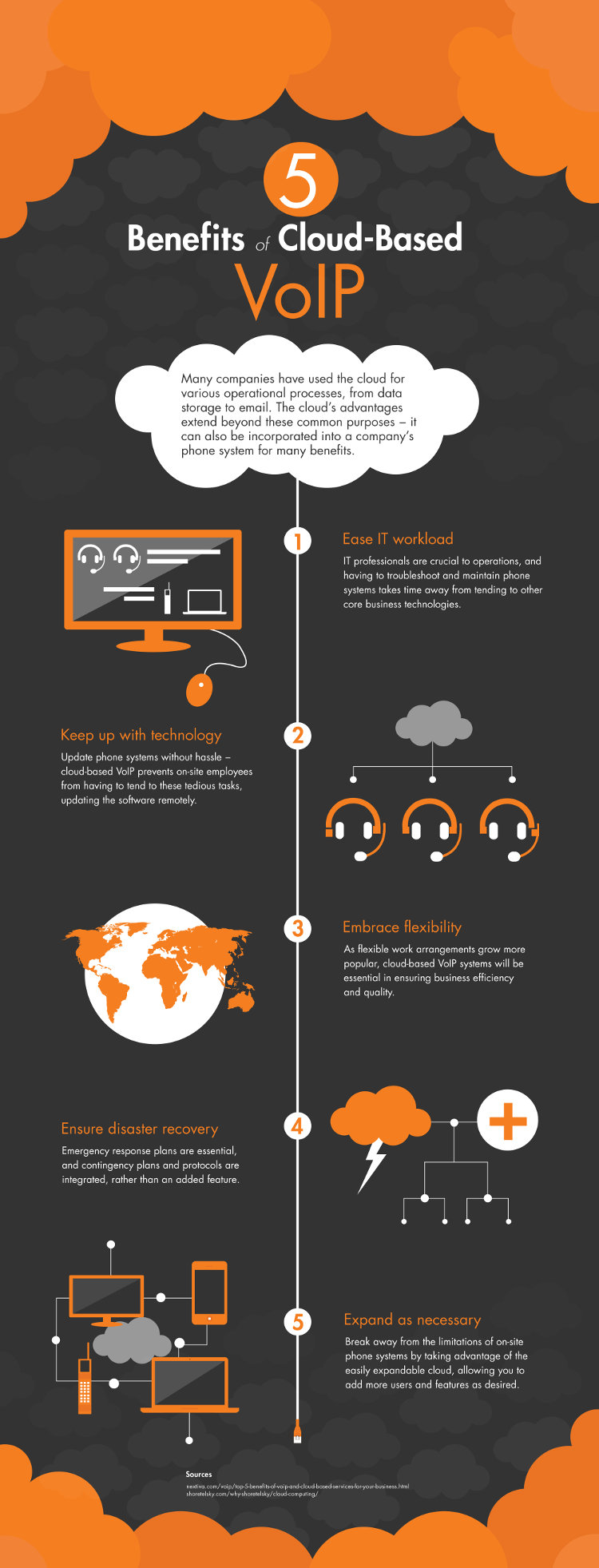
5 BENEFITS OF CLOUD-BASED VoIP
Table of Contents
posted in INFORMATION TECHNOLOGY
Although many companies have already begun to use the cloud for their everyday business needs, this tool’s capabilities expand far beyond the day-to-day operational processes. By integrating cloud-based VoIP into your firm, IT professionals can spend more time tending to core business technologies instead of having to troubleshoot and maintain phone systems.

Additionally, VoIP phone systems update themselves without hassle, and therefore do not require the attention of on-site employees. This also translates into an integrated emergency plan that companies do not need to worry about.
In addition to easing employees’ workloads in the office, cloud-based systems can break through geographical boundaries by allowing your company’s workforce to access important information wherever they are. Business leaders will also enjoy the easy expansion that VoIP systems provide. By breaking away from the limitations of on-site phone systems, companies can add as many users and features as they desire.
For more information on the benefits of cloud-based VoIP, check out the infographic below:
Graphic provided by ShoreTel Sky
Recap
Businesses have commonly used the cloud for operational processes. Today, the cloud usage extends to other processes, such as VoIP. It’s a natural development of cloud-based business operational processes, but what are the benefits of cloud-based VoIP?
1. Reduce IT workload
IT pros have so much work to do, other than maintaining and troubleshooting phone systems. The cloud provisions the resources required, nearly eliminating the need for on-premise setup.
2. Ease of update
With the cloud, you can easily update your phone systems’ software remotely. Instead of doing the system upgrade one by one, cloud-based VoIP system upgrades impact the entire systems.
3. Support to flexible/remote working
Your phone systems extend beyond the walled office. You can easily scale your phone systems to meet your business demands, such as accommodating flexible work arrangements.
4. Disaster recovery
The cloud provides integrated recovery plans and protocols should disaster strikes. Everything is set up via a centralized operational panel, including setting up rules for data backup.
5. Expand as needed
No more limitations – you can scale up/down your phone systems in real time – thanks to the cloud. No more expensive system upgrade of the conventional phone systems.




